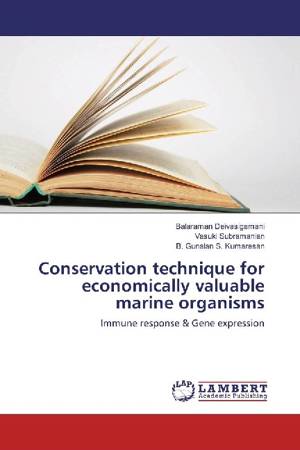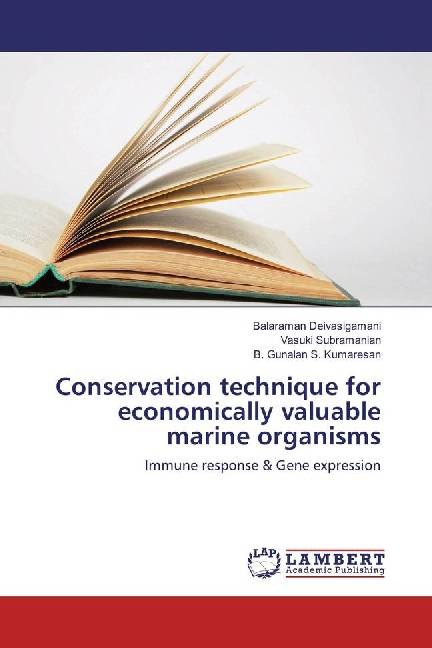
- Afhalen na 1 uur in een winkel met voorraad
- Gratis thuislevering in België vanaf € 30
- Ruim aanbod met 7 miljoen producten
- Afhalen na 1 uur in een winkel met voorraad
- Gratis thuislevering in België vanaf € 30
- Ruim aanbod met 7 miljoen producten
Zoeken
Conservation technique for economically valuable marine organisms
Immune response & Gene expression
Balaraman Deivasigamani, Vasuki Subramanian, B. Gunalan S. Kumaresan
Paperback | Engels
€ 35,45
+ 70 punten
Omschrijving
Research on the fish immunology has been scanty; this programme focuses mainly on the application immunotechnology to marine fishes. These methodologies will empower the scientific community to develop lab scale product into aquaculture industrially applicable product (antigen and antibody). Seaweeds are rich in proteins, vitamins, carbohydrates, fiber, lipids and minerals. When fresh, they are 75-85% water and 15-25% organic components and minerals. Dry matter is 65-85% organic substances and 30-35% ash (FAO 2005). Some species of algae may contain greater contents of protein, carbohydrates and fat than the ingredients traditionally used in shrimp diets. India has vast potential for coastal aquaculture development. Shrimp farming development holds immense employment potential for the local people. Food safety is one of the major issues in the shrimp produced in India. It is essential that banned antibiotics should not be used in the hatchery and farm. The extension officers are required to educate the farmers on the responsible use of drug in aquaculture and non-use banned antibiotics in the culture systems.
Specificaties
Betrokkenen
- Auteur(s):
- Uitgeverij:
Inhoud
- Aantal bladzijden:
- 52
- Taal:
- Engels
Eigenschappen
- Productcode (EAN):
- 9783659910968
- Uitvoering:
- Paperback
- Afmetingen:
- 150 mm x 220 mm

Alleen bij Standaard Boekhandel
+ 70 punten op je klantenkaart van Standaard Boekhandel
Beoordelingen
We publiceren alleen reviews die voldoen aan de voorwaarden voor reviews. Bekijk onze voorwaarden voor reviews.











